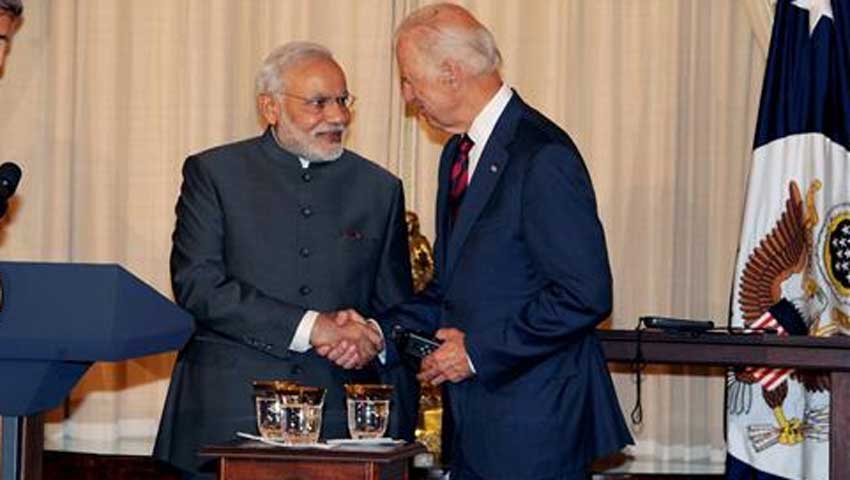US needs to take a hard headed approach and dismantle the terrorist groups operating from Pakistan.
The bilateral cooperation between India and the United States on a number of pertinent important areas including counter terrorism cooperation has signalled their intent to work together and build a robust strategic partnership. India has featured prominently on US radar as a responsible player in the international system. India’s position has improved remarkably over the years and is being perceived as an indispensable partner in the emerging dynamics of geopolitics. On the other hand, India considers the United States as a “natural ally”.
Despite sharing common characteristics, India and the US, for a long time, could not develop a robust partnership because of varying misperceptions about each other. Technically speaking, the mistrust between the two started waning since Atal Bihari Vajpayee’s regime and more importantly after India was able to explain the rationale behind Pokhran II. The United States understood India’s predicament from the deteriorating regional security environment. The 11 September event in 2001 changed US perception on cross-border terrorism, which India started confronting since the latter part of the 1980s. Prior to the 9/11 event in 2001, the US never regarded cross-border terrorism as a key element in Pakistan’s policy.
India and the US saw convergence on the issue of terrorism and evolved a bilateral framework in combating the menace. The complete elimination of global terrorist networks on the part of the US became a priority. However, the feasibility of such elimination was too difficult to achieve. From India’s point of view, the dismantling of regional terrorist networks, supported mainly by Pakistan, became a preferred strategy. Both India and the US started emphasising on preventing terrorist attacks. This has been possible only because of their bilateral counter terrorism efforts.
India-US Counter-Terrorism Cooperation Initiative was signed in 2010 to expand bilateral collaboration between the two countries on various counter-terrorism initiatives such as exchange of information, operational cooperation, and developing and sharing counter-terrorism technology and equipment. It was a good beginning, which further helped in establishing mutual trust. The intelligence information sharing at the bilateral level was never envisaged in India-US relations. The capacity building through this bilateral framework in understanding the relevance of technology in intelligence gathering became a necessity and such actions from both sides have created win-win situations.
After President Barack Obama visited India in 2010, there was intensification in all the bilateral initiatives for improving the capabilities to deal with the emerging challenges emanating from terrorist groups. One such notable example can be seen in both India and the United States agreeing to exchange terrorist screening information through the designated contact points. Another milestone in this joint counter-terrorism initiative was set when India joined the US Homeland Security Presidential Directive-6 (HSPD-6). This was a significant step in the direction of exchanging unclassified biographic information related to terrorists. More recently, both the armies of India and the US together did a joint exercise mainly to practice efficient counter-insurgency and anti-terrorist operations. Both countries also raised the issue of terrorism and urged for collaborative practices to counter the same at several forums.
President Joe Biden is not going to be new in dealing with the menace of terrorism. As a Vice President, one can recollect his strategy and coinage of the term “counter terrorism plus”, which focused on fighting terrorists using aggressive air strikes and small groups of special US forces, instead of conventional troop deployments. This strategy was clearly visible while the Obama administration fought against terrorist and militant groups in Pakistan, Afghanistan, Iraq, Africa and in the rest of the world.
There are apprehensions for the future course of action by the Biden-led US on Pakistan. The Biden administration may invite and involve Pakistan in establishing peace in Afghanistan, and hence there could be a soft approach towards the country that has been promoting terrorism in South Asia, which has built strong linkages with the global terrorist network. Unless and until the US takes a hard headed approach and dismantles all the terrorist groups operating from Pakistan, it would be really difficult to weaken the global patterns of terrorism.
Biden also seems to be a promoter of efficient surveillance and cyber security policies and provisions as he considers this as one of the key areas for the US. This seems to be a priority for India as well, and hence both countries have immense possibilities in developing joint signal and electronic intelligence. How the United States would strengthen India’s capabilities in gathering intelligence information with the help of technology would form a major part of the debate in Biden’s Administration; though India has made a strong base and a robust infrastructure for harnessing various technologies for gathering intelligence. Both National Technical Research Organisation (NTRO) of India and the National Security Agency (NSA) of the United States will have to work together in augmenting all their bilateral efforts and harnessing technology for gathering intelligence.
The signing of the landmark Basic Exchange and Cooperation Agreement (BECA) by India and US in October 2020 will help India get real time US geospatial intelligence information. There is already a strong foundation built in India-US counter terrorism cooperation. President Biden will obviously be continuing with these policies with India. Such action will be in the interest of the United States and India.
Dr Anshu Joshi is currently Assistant Professor at the Centre for Canadian, United States and Latin American Studies, School of International Studies, JNU.

